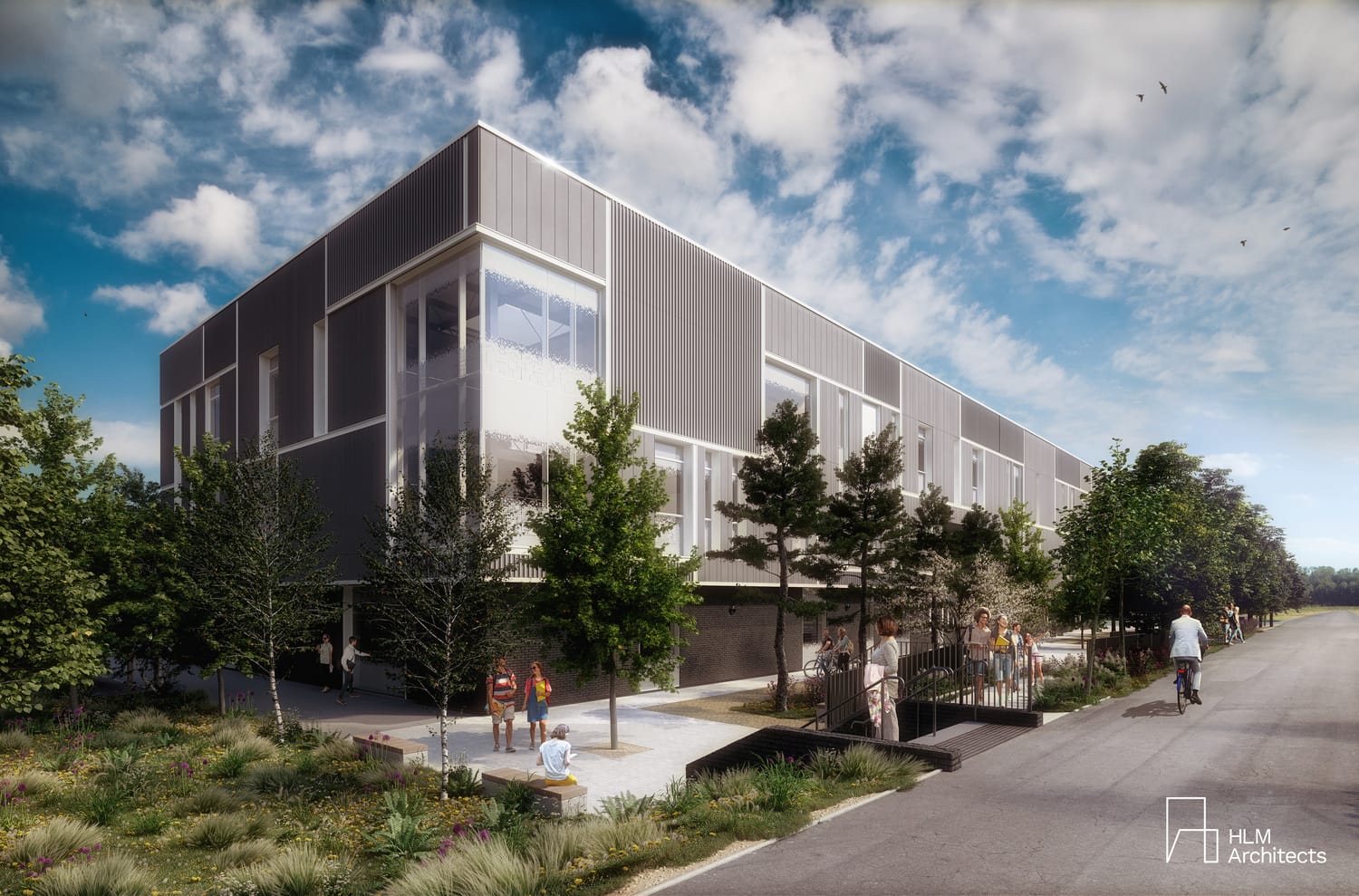
Plans for a new Digital Innovation Centre at Keele University, designed by HLM Architects working with WYG and Poole Dick, have been given the go ahead by Newcastle-under-Lyme Borough Council’s Planning Committee.
The first phase of the facility will provide circa 2,696sqm of BREEAM excellent innovation space in the Keele Growth Corridor University Enterprise Zone showcasing world-leading research on digital themes and technology.
The £10.4m scheme will be located in a zero-carbon, all-electric building connected to the campus solar and wind energy farm, acting as a demonstrator for smart energy, cities and transport.
The project team carried out a passive design analysis to identify ways to reduce energy demand and carbon emissions through measures such as orientation, thermal efficiency, and natural ventilation.
Parametric modelling helped optimise façade design to further improve building performance and the quality of the internal environment, resulting in an 18 per cent reduction in energy use purely through good, passive design measures.
The creation of the digital innovation centre will form part of the New Keele Deal – a £70 million investment by Keele University, Staffordshire County Council, Stoke-on-Trent City Council, Newcastle-under-Lyme Borough Council, University Hospitals of North Midlands NHS Trust and the Stoke-on-Trent and Staffordshire Local Enterprise Partnership to exploit the potential of Keele University’s world-leading research and facilities, resulting in a significant number of higher value jobs being created locally over the next 20 years.
Construction for the project, which is targeting a BREEAM ‘Excellent’ sustainability rating, is due to start in January 2021 for completion in summer 2022.
Karl Brown, the Project Lead, said: “From the outset, we led extensive stakeholder engagement to fully understand the needs of all future building users. Our digital engagement tool, HLM Insight, was sent to all staff and faculty so that we could understand their preferences for the quality of the built environment under key physiological and psychological criteria. Flexibility, mobility and adaptability were also major drivers, with workspaces designed to be changeable to suit the evolving needs of businesses and teaching spaces and support different pedagogical approaches.
“Despite the impact of COVID-19, both resource level and continuation of the design development has continued unhindered, albeit now digitally, which has worked very well. We are pleased that this project can now move forward and further promote Keele University as a regional hub supporting digital business, knowledge, and innovation.”





